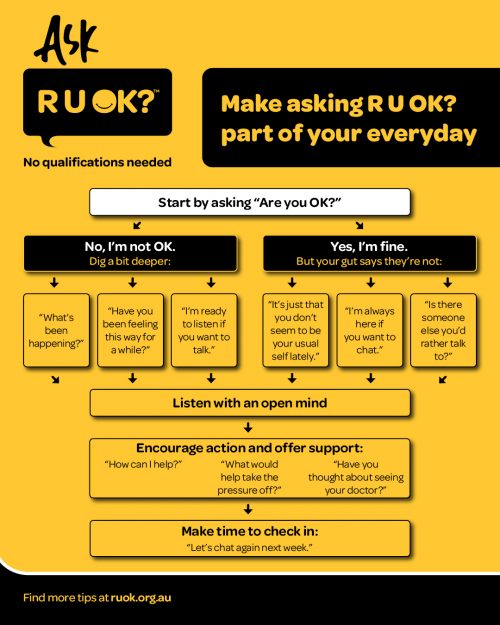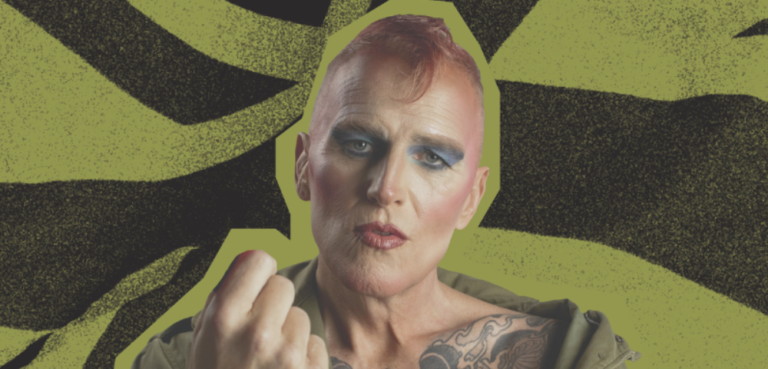
Today Is R U OK? Day

September 8 is R U OK? Day. So now is the perfect opportunity to learn how to check in with family and friends.
Trigger Warning: This story discusses suicide, which might be distressing to some readers. For 24 hour crisis support and suicide prevention call Lifeline on 13 11 14. For Australia-wide LGBTQI peer support call QLife on 1800 184 527 or webchat.
The R U OK? campaign was started in 2009 by Gavin Larkin in response to his father’s suicide in 1995.
The simple question, “are you okay?” was chosen to honour Barry Larkin’s death and to prevent other families from experiencing the loss of a family member through suicide. Gavin believed that this question could spark a conversation that has the power to change a life.
Ask A Loved One – R U Ok?

Everyday is an opportunity to ask a loved one if they are okay. R U OK? Day prompts Australians to reflect upon what their friends and family members are saying, doing and how they’re living. Common signs that someone is struggling include:
- Confused, irrational or moody behaviour
- Low self-esteem
- Loneliness or self-isolation
- Excessive concern over the future or about being a burden
- A loss of interest in doing what they love
- Difficulty concentrating
- Reckless behaviour
- Sleep changes
- Relationship, health and/or financial issues
It is important to note that these signs can be varied or subtle, and if you have a gut feeling and are worried about a loved one, it may be a good time to check in and ask, “are you okay?”.
Four Steps To R U OK?
Alternatively, if you yourself do not think you’re in the right headspace or are the right person to start the conversation, try to think about another person in your loved one’s support network who could step in.
The four steps to R U OK? are:
- Ask, “are you okay?”
- Listen with an open mind
- Encourage action
- Check in
When having the conversation, be prepared to genuinely listen and know that someone may reveal that they are not okay or that they may not be ready to talk. Someone may be more comfortable talking in a private space when there is sufficient time for both parties to have a meaningful conversation.
Try to be relaxed and friendly and to mention the specific concerns you may have, for example, “You seem less chatty than usual. How are you going?”. Take care to be non-judgemental and patient. You may wish to encourage them to explain things further, like by asking how they feel about something.
Seek The Help Of A Health Professional
If someone doesn’t want to talk, that’s okay too. Let them know you are concerned and that you care about them. It may also be a good idea to ask if there is someone else they’d like to talk to or that if they ever want to talk in the future, they can give you a call.
If someone has been struggling for two weeks or more, encourage them to see a health professional and offer to help find the right one.
In the meantime, you can ask how they would like to be supported or ask if there’s something enjoyable or relaxing that might make them feel better right now.
Remember it’s important to check in a couple weeks later, or sooner if you’re concerned. Visit ruok.org.au for more resources and tips and to see how you can get involved in R U OK? Day.
You can reach out to support services.
For 24 hour crisis support and suicide prevention call Lifeline on 13 11 14
For Australia-wide LGBTQI peer support call QLife on 1800 184 527 or webchat.









